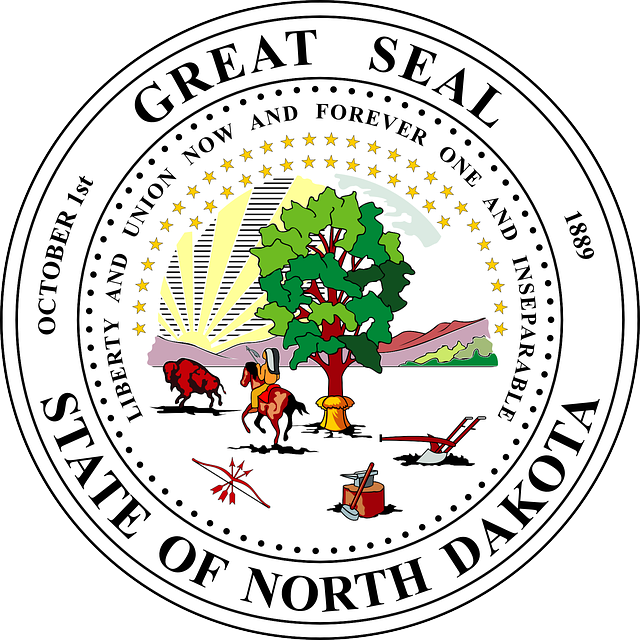North Dakota's debt collector laws (ND) strictly regulate collection agency practices to protect consumers. These laws mandate transparent communication, accurate record-keeping, and fair treatment. Agencies must verify debts, provide clear information, limit aggressive tactics, and respect debtor rights. Non-compliance results in significant penalties, emphasizing the importance of adherence to ND's debt collector regulations for ethical debt collection.
North Dakota’s debt collection agency client accounting rules are a vital aspect of ensuring legal compliance and ethical practices within the state’s debt recovery industry. This comprehensive guide explores key regulations, including understanding North Dakota debt collection laws, client accounting best practices, record-keeping requirements, and consumer rights protection. By adhering to these guidelines, debt collectors can navigate the complex landscape of ND debt collection laws while prioritizing fair and transparent treatment of clients.
Understanding North Dakota Debt Collection Laws

In North Dakota, debt collection practices are governed by both state and federal laws, primarily the Fair Debt Collection Practices Act (FDCPA) and the North Dakota Collection Agency Act. Understanding these regulations is crucial for both debt collectors and consumers to ensure fair and ethical practices. The FDCPA sets national standards for how debt collectors can communicate with debtors, including restrictions on aggressive collection tactics, false or misleading statements, and harassment.
Debt collectors in ND must also adhere to specific rules regarding the verification of debts, the frequency of contact, and the disclosure of information to third parties. They are required to provide written notice to debtors outlining the amount owed and the name of the original creditor within five days of initial contact. These laws aim to protect consumers from abusive collection methods while allowing legitimate debt collectors to recover funds they are entitled to.
Client Accounting Rules: Legal Compliance

In North Dakota, debt collection agencies are subject to specific rules and regulations regarding client accounting practices. These rules, established by state laws, ensure transparency, accountability, and legal compliance in the financial management of collected debts. Debt collectors must maintain accurate records of all transactions involving clients, including detailed accounts of debt payments, fees charged, and any other associated expenses.
Adherence to these client accounting rules is paramount for debt collection agencies operating in North Dakota. Non-compliance can lead to legal repercussions, including fines and potential license revocation. As such, these agencies must implement robust internal controls, regularly audit their records, and ensure that all financial dealings with clients are meticulously documented and in line with the state’s debt collector laws.
Record-Keeping Requirements for Debt Collectors

Debt collectors in North Dakota are subject to strict record-keeping requirements under the state’s debt collection laws. They must maintain detailed records of all accounts, including information about the original creditor, the amount owed, and the history of communications with the debtor. These records should be accurately documented and easily retrievable for a specified period, typically several years.
The North Dakota debt collection agency client accounting rules emphasize transparency and fairness in the collection process. Collectors must preserve evidence of all actions taken during the collection of a debt, such as notices sent, calls made, and payments received. This meticulous record-keeping ensures that both debtors and creditors have access to clear documentation, facilitating efficient resolution of financial disputes and protecting the rights of all parties involved.
Ethical Practices in ND Debt Collection

Debt collection agencies operating in North Dakota must adhere to strict ethical practices and state laws, known as debt collector laws ND. These regulations are designed to protect consumers from unfair or aggressive collection tactics. Agencies are mandated to conduct business transparently, ensuring clients’ rights are respected throughout the process. This includes providing clear notices, verifying debts, and avoiding false or misleading communications.
ND debt collection agencies must maintain accurate records of their interactions with clients, offering a level of accountability. They should refrain from using abusive language, threatening behavior, or any form of harassment when contacting individuals or families. By upholding these ethical standards, collection agencies can foster trust and ensure a more positive experience for those dealing with debt issues.
Protecting Consumer Rights: Key Regulations

Protecting consumer rights is a paramount concern in North Dakota’s debt collection industry, as state laws aim to prevent aggressive or unfair practices. The North Dakota debt collector laws are designed to ensure transparency and fairness in the interactions between debt collectors and consumers. One of the key regulations is the requirement for debt collectors to provide clear and concise information about the debt, including the name of the original creditor and the amount owed. This empowers consumers to verify the validity of the debt and take appropriate actions.
Additionally, these laws restrict the frequency and manner in which debt collectors can contact consumers, particularly regarding phone calls and written communications. They must also provide consumers with the right to dispute the debt, ensuring that inaccurate or unverifiable debts are corrected promptly. Such safeguards are essential in maintaining a balanced relationship between debt recovery efforts and consumer protection, fostering trust in the collection process.






